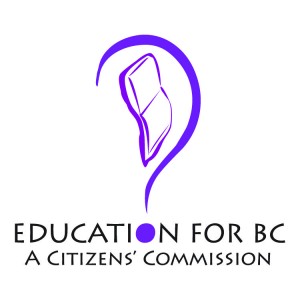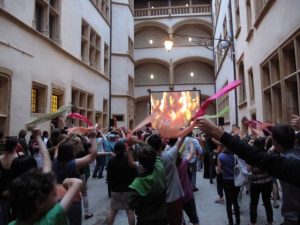Posts Tagged ‘learning’
A Song And Its Resonance
There is this song.
I have listened to it obsessively. Usually at night before I turn off the lights. As a remedy, as a tonic, as an anthem for the work I’m doing and the work I hope to do.
I’ve written about music and memory before (see here), but this is different. This is about now and the way this music spurs me on in the current social and political climate.
This song is a spark. A spark that is a component of the antidote we need in these dark times of hate, intolerance, and evil.
It’s from a movie I’ve never watched and perhaps there’s a risk in viewing only one four-minute segment from a feature-length film. This video is also now almost a year old. I only discovered it because of YouTube’s algorithmic operation. The same algorithms that have contributed to so much of the strife and misinformation that contaminate our news and information diets.
The song is from the movie The Greatest Showman. “This Is Me” is sung by Keala Settle who plays Lettie Lutz in the movie (Annie Jones in real life), the Bearded Lady and one of P. T. Barnum’s original nineteenth century cast members. Leaving aside the nature of Barnum’s commercial project and even the commercial project from which this song is drawn, absorb the lyrics as you watch the video.
As much as the words move me, there is magic in the choreography. It’s that magic that pulls me in — every time. That resonates in my heart. The earthiness of the stamping feet, the power of the arms punched into the air, the rhythmic staccato of the bodies swaying. It’s solid, it’s demanding, it’s asserting the right of these bodies to exist as they are in all spaces. In the light, not the dark, in amongst you and me. In amongst us all.
There’s that moment when the performers are suspended in air. They’ve transcended the chains of exclusion and the labels of derision to float above their cares and their worries, but the truth is in the thud of their landing. That landing on two feet. That is when they reclaim their place. The true power of their existence is in the human groundedness of their experience.
And as much as I appreciate the beauty of the production values in this video, the version of the song that I treasure is this one.
Here, Keala Settle is not singing the song from the character’s perspective. As authentically as she might inhabit the character in the film, she is not Lettie Lutz. That is the masquerade.
In the workshop version, Settle embodies the song. She embodies the essence of the words, the heart of the matter. Here, she is singing her life story. She is reliving every struggle, every hurt, every joy, every triumph, and every hope. It’s that uncloaked look into who she is, who she is without adornment or disguise, that opens up the whole performance, hers and that of every other person in the room. You can see it in the ecstatic communion of their spirits and voices.
And the universality in the message of this song, the truth of it, is that we are all different. Our differences do not make us less than any other. They only do so when others associate difference with inferiority, with lack, with less-than.
Unfortunately, it is also a truth that those with power and privilege have gained their rank through a long historical process of magnifying and demonizing difference. Manipulating fear to validate sacrificing others for profit and prestige. For control.
So, there’s a radical — if not revolutionary — message in this song despite the fact that it’s embedded in a cultural artefact that itself is a product of our systems and structures of consumerism and privilege.
And it is this.
I know that there’s a place for us
For we are glorious
Each and every one of us.
And don’t let them, those who benefit from the exploitation of difference, ever tell you differently.
If they do, fight back.
Do not give them a platform to amplify and broadcast hateful messages.
Vote them out.
Unnecessary Movie Audience Restrictions
Hieronymus Bosch. A late-Medieval Dutch painter and an artist whose work intrigues my son.
This month the Vancouver International Film Festival Society (VIFF) is screening a movie about curators preparing an upcoming exhibition of Bosch’s work. How interesting! How cultural! How … wait a minute: what do you mean I can’t take my son to see the film?
It turns out that if a film is unclassified, the regulations prohibit the sale of a ticket to anyone under 19. How absurd! Furthermore, when a film is classified and those under 19 are able to attend, the VIFF theatre concession can no longer serve its adult patrons alcohol. How ridiculous!
So, I’ve written a letter to Minister Oakes urging her to cut this red tape and I will mail it this evening.
If you share my point of view on this, please write the Minister, too.
The more she hears from BC voters, the more likely the government will address these anachronistic provisions, which make a mockery of consumer protection.
September 2, 2016
Honourable Coralee Oakes
Minister of Small Business, Red Tape Reduction
& Responsible for the Liquor Distribution Branch
P.O.Box 9054, STN Prov Govt
Victoria, BC V8W9E2
Dear Minister Oakes,
I had wanted to buy tickets for my family to one of the Vancouver International Film Festival Society (VIFF) screenings of a movie about Hieronymus Bosch, the visionary late-Medieval Dutch painter.
Unfortunately, I’m unable to do so since the movie is unclassified and I cannot buy a ticket for my fifteen year-old son.
My son is an artist and has long been intrigued by Bosch’s work. As his parent, I’m very comfortable in accompanying him to this movie. Its content is cultural, informative, historical, and fascinating. It is in no way a threat to his well-being or his psyche. I think anyone would be hard-pressed to argue that he doesn’t have the maturity necessary to watch this particular film.
In inquiring as to why I was unable to take my son to the movie, I have learned that it is provincial law, not VIFF policy, which demands the classification of films before they can be shown to teenagers. Apparently this law covers only theatrical screenings and DVD releases, but not television nor the internet.
This regulatory policy is based on a logical fallacy that an unclassified film is the same as an unsuitable one. It is a level of red tape that not only hinders operations at VIFF, one of Vancouver’s outstanding cultural institutions, but it also assumes that parents are incapable of determining which movies their teenage children may watch.
The same anachronistic regulations prohibit VIFF from allowing liquor in the theatre on Seymour Street when youth under 19 are present. This seems like an unnecessary duplication of restrictions given that concession staff would be prohibited from serving minors. It also diminishes the experience for older patrons who are denied their full privileges simply because the broader classification of a particular movie expands the audience for that particular screening.
I am writing to ask that you review these particular regulations and amend them at the earliest opportunity. Allow teenagers to attend unclassified movies with their parents’ approval and allow liquor service when a movie audience includes those under 19. That would be an effective red tape reduction and a positive support for small business in the cultural sector.
Thank you Minister Oakes for your consideration of the above. I hope that you will take the measures necessary to introduce a more enlightened approach for screenings of unclassified films in Vancouver, whether at the VIFF theatre or at other locations. Such an approach would facilitate the attendance of teens at film events. It is an approach that will draw in younger audiences, not shut them out and without diminishing the experience of older patrons.
Sincerely yours,
Reema Faris
cc.
Honourable Suzanne Anton, Attorney General & Minister of Justice
Jacqueline Dupuis, Executive Director, VIFF Society
Rob Gialloreto, President & CEO, Consumer Protection BC
The Balance In Governance
As parents and educators, we know there’s a balance when working with those who may depend upon us. We want to be their friends, but that’s not our only role. There is a boundary — the hardest one to find — between being a friend and being an effective role model and guide.
The same is true with Boards and governance. It’s not necessarily about being liked, it’s about being effective.
While my most recent experience is as a Trustee with the West Vancouver Board of Education, my comments are applicable to Boards in general. I also don’t claim to have answers nor have I conducted exhaustive research; these are personal reflections.
It may be important for Boards and the senior teams they work with to have their goals and objectives align, but this doesn’t always mean their interests are the same. So while mutual support and consideration are essential ingredients for long-term success, there has to be an acknowledgement that consensus is not the same as agreement. Opposition and conflict are not always signs of dysfunction and elements of both can lead to better decision-making because conformity and complacency, in my opinion, are greater dangers.
A quick Google search turned up this provocative article from the Harvard Business Review which points to weaknesses in our notions about teams and stresses the importance of asking questions. I always find it perplexing that we stress the importance of critical thinking skills in twenty-first century learning and yet have trouble with the actual application of such skills in the workplace. To me, a successful Board is one which makes its safe for questions to be asked (easy questions, tough questions, ridiculous questions, any kind of question) because that is a Board which values knowing over guessing, inquiry over a lack of curiousity, and due diligence over acceptance.
Perhaps the most challenging part of being on any Board today is the way in which information circulates. Correspondence is rarely two ways — it’s multi-directional — and the speed at which we communicate has accelerated. It’s so important to get a good grasp on how communications and correspondence will be managed, but it’s also critical, in my opinion, to recognize that managing the process of being responsive is not about shutting down voices. It then becomes an issue of how to set up an effective system which is timely, efficient, and allows for diversity in who speaks on what and when. The tendency, as we can see in federal and provincial politics, is to centralize the message and if you’re like me, you can see that it works, but at a cost to democratic representation.
Boards also need to know more than what they are told they need to know. As is true in education, it’s not about spoon feeding content, but about engagement and broadening horizons. It’s also important to remember who makes up a Board’s constituency. In a complex field such as education for example, it’s not just about the Trustees around the table nor the team in the School Board office nor the administration group in a school, it’s about all of these and it’s also about parents, students, employees, teachers, the community, and more.
It’s not easy being on a Board just as it’s not easy being a parent or an educator. And it’s never about finding the easy way of doing things.
It’s about recognizing boundaries and making sure they never turn into un-traversable moats.
An Announcement in Two Parts – Part 2: Let The Talks Begin
I want to talk to everyone.
I want to talk to parents, students, teachers, administrators, Trustees, business leaders, politicians, school district employees, community residents, the media, and more.
I want to talk to people in the Lower Mainland, throughout British Columbia, across Canada, and internationally. And I want to share the content of these discussions with others.
I want these conversations to be about education. Specifically, I want to discuss and investigate the following three key questions:
- What is education?
- What is the purpose of education?
- How do we deliver this education to all the children of BC to ensure the future health and vibrancy of our society?
I also want to make sure that education is a ballot box issue in 2017. I want the moderator of the next leaders’ debate to pose more than one throwaway question on the topic and I want every MLA candidate in this province to be asked about education when they are campaigning.
Why?

Because the current polarization in the education sector is not productive. The discussions about education in this province have devolved into ideologically formed positions and institutional battles with the result that we are not serving our children well.
The last Royal Commission on Education was held in 1988 and the world has changed since then, but these changes are not reflected enough within our education system.
During the recent job action, the BC Education Plan, a framework for planning proposed under the direction of the Ministry of Education, was politicized and the partisanship compromised the plan as an avenue for wide-ranging conversations.
I appreciate efforts such as BCEdChat on Twitter (Sunday evenings at 7:00 p.m. @bcedchat), the Ministry-led discussions around the curriculum, and many other individual initiatives meant to raise awareness of education issues. I also recognize the hard work of many other groups which have recently emerged to support public education. I hope they’ll all continue with the important work they’re doing. The more voices raised, the more they’re likely to be heard.
I also respect the work of the established groups which represent a collective voice for parents (BC Confederation of Parent Advisory Councils, BCCPAC), educators (BC Teachers’ Federation, BCTF), trustees (BC School Trustees Association, BCSTA), and others. Each organization has their own issues to address and I think they all have much to do in the future to meet the needs of their members.
Even so, it seems to me that we need to draw on a much wider circle of participation.
And that’s what I plan to do.
I want to create a forum and an arena where everyone can contribute to the discussion without having to be a member of any particular organization or having to espouse a particular outlook or perspective.
I want this to be a dialogue for all of us because the way in which we manage education affects each of us.
With this in mind, I’ve established a citizen’s commission on education. It’s a small step. One I felt I had to take because the “bigger picture” discussion about education has been lost in the turbulence of the sector over the past few decades.
This idea may work. It may not work. But I felt I had to do something to galvanize public attention and to give education in this province the attention and support it requires.
It’s time to focus the dialogue on education: what we mean by that term and what we want it to be. Then we need to let our political representatives know what it is we want from our education system. We can no longer sit back and have them tell us what education should look like because based on the evidence, their views do not seem to extend beyond the next election.
Join me in the conversation. Help me create a framework for dialogue. Visit www.EducationForBC.com and follow @edu4bc on Twitter. Help me get the talking started.
Let’s work together. Let’s make this happen for our children and for all of us.
An Announcement in Two Parts – Part 1: Not This Time
Three years ago, I put my name forward as a candidate in the 2011 municipal elections. I ran for the position of Trustee on the West Vancouver Board of Education and was honoured when voters in this community elected me to serve in that capacity.
My foray into electioneering also marked my social media debut outside the comfort zone of Facebook.
I dove into Twitter, a platform with which I’ve become very comfortable and which is now a part of how I absorb, consume, and contribute to media on a daily basis. It has also allowed me to create an invaluable network of connections.
After a long time of saying, “I would like to start a blog,” the election also spurred me to start one which I called The Comfort of Why. The best explanation for this title can be found in the speech I made at the first all-candidates’ meeting in 2011 where I said:
I take great comfort in the question why. As long as I’m asking why, I’m thinking, I’m reflecting, I’m challenging. I am looking for answers rather than assuming I have all the answers. I’m seeking information rather than dictating the way that things ought to be perceived.
To me, this questioning is not about undermining a system and disregarding the work that’s been done. It’s about validating what you believe, being responsive and strategic — making changes when they’re needed, when they’re necessary, and making them at the right time.
My first blog entry was posted on October 19, 2011, and it was comprised almost entirely of questions including this one:
Consider, too, that the BC Ministry of Education is pushing the concept of “personalized learning in the 21st century”. Why? What does it mean?
My position at the time, in regard to this particular question, was as follows:
Well, I want to be at the table to make sure that if there’s an overhaul of the system it’s done well and it’s done right. That it’s implemented in a way which benefits all students.
After three years of being at the table, I still feel this is a valid question and one that is not being addressed at a provincial level.
I still want to have this conversation. In fact, I feel we must have this conversation if we are to continue to offer our children the best opportunities to learn, to grow, and to find their way in the world.
While I recognize the valuable work that our Board has done in the past three years, in collaboration with the District Leadership Team, our education partners, our educators, and all our employees, I will not be seeking reelection in 2014.
Why?
There are a number of factors, but let me focus on three key points.
First, West Vancouver is a community with such depth of talent and with many actively engaged residents who are passionate about education. The deadline for nominations is tomorrow and already seven candidates have filed their papers which means we will have a dynamic and substantive campaign featuring a diverse range of opinions from individuals who all have much to offer.
Second, the most recent job action was very instructive and there are many lessons to be learned in how it played out. One of the most significant learning outcomes for me was to recognize that in order to move the provincial government into action on education, we need much greater direct engagement from the public. That citizens’ voice has to be galvanized if we want to ensure that education is a prominent, if not THE, election issue in 2017.
Finally, education in British Columbia has become such a polarized — and polarizing issue — that what we don’t talk about is education. This discussion — the conversation I’ve always said I wanted to see happen — has been drowned out by criticisms and accusations, by duelling press conferences and media soundbites, by job actions and political posturing.
It’s time that we, as citizens and voters, speak up and get what we want for our children, our society, and our future.
I have some ideas on how we might do just that.
Watch for Part 2.


